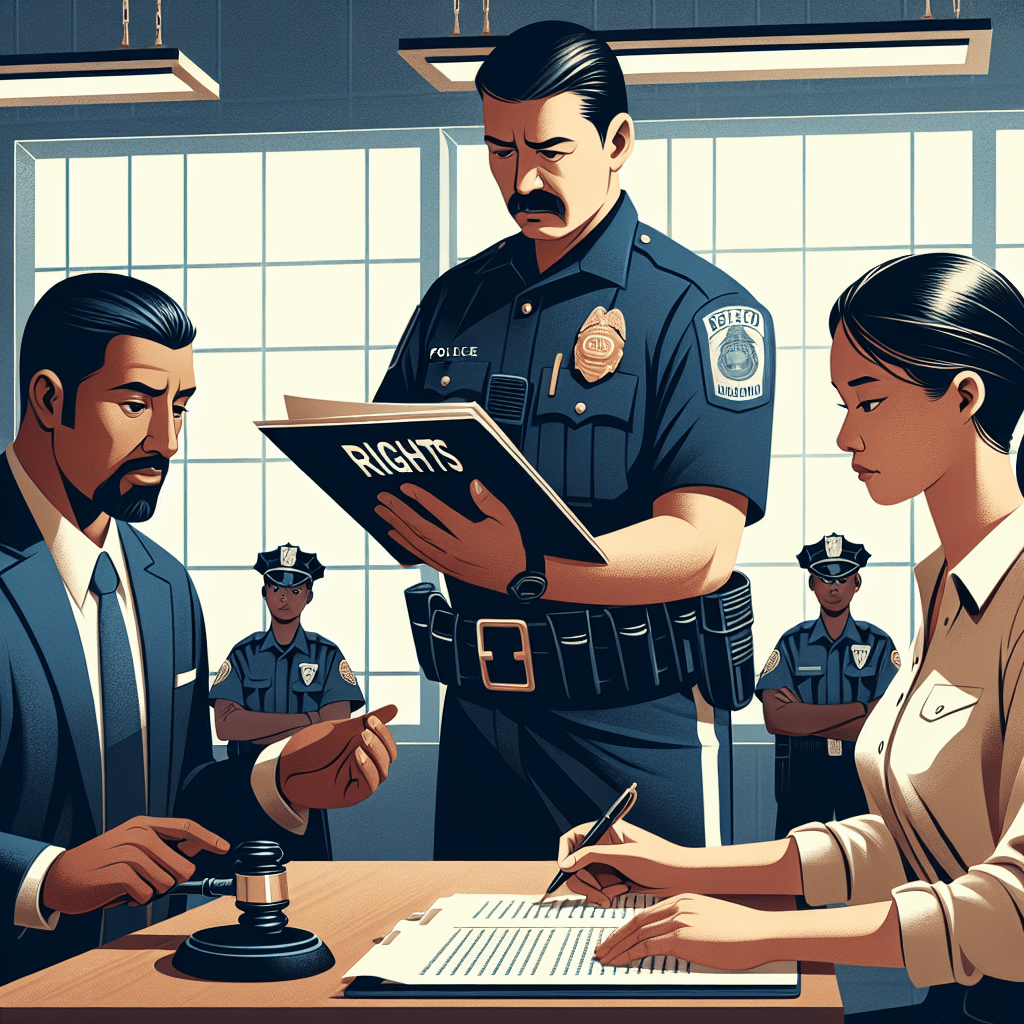What Are My Rights If I’m Arrested?
Being arrested can be an overwhelming experience, and it’s crucial to understand your rights to navigate the situation more confidently. In the United States, the Constitution provides several protections to ensure fairness and justice for anyone facing arrest. Here’s a friendly guide to help you know what to expect and how to protect your rights.
Your Right to Remain Silent
One of the most essential rights is your right to remain silent, which is part of the Miranda rights. When you’re taken into custody, the police are required to inform you of this right. But what does it actually mean? Simply put, you don’t have to answer any questions or make any statements to the police, except for providing your basic information such as your name and address. Remember, anything you say can be used against you in court, so it’s often best to stay silent until you have a lawyer present.
Tip: Politely inform the police officer that you choose to exercise your right to remain silent.
Your Right to Legal Counsel
You also have the right to an attorney. If you can’t afford one, the court will appoint a public defender to represent you. Having a lawyer is critical because they understand the complexities of the law and can provide guidance on the best course of action for your situation. They’re there to protect your rights and help you avoid saying anything that might be self-incriminating.
Tip: Clearly state, “I would like to speak to a lawyer,” as soon as possible.
Protection Against Unreasonable Searches and Seizures
The Fourth Amendment protects you from unlawful searches and seizures. This means the police need a warrant to search your personal property, like your home, unless certain exceptions apply (for example, if they believe there is an immediate threat). If the police violate this right, the evidence they gather might not be admissible in court.
Example: Suppose you’re arrested and the police want to search your car. Unless there’s probable cause or another exception applies, they generally need your consent or a warrant.
The Right to Know the Charges
You have the right to be informed of the charges against you promptly. Understanding what you’re being accused of is your first step in preparing a defense and is crucial for a fair legal process.
Bail and Pretrial Release
Once arrested, you might be eligible for bail—money paid to secure your release while awaiting trial. The idea is to ensure you’ll show up for your court date. Bail conditions depend on factors such as the severity of the alleged crime and your criminal history. In some cases, you may be released on your “own recognizance,” meaning you’re trusted to return for the hearing without paying bail.
Practical Tip: Contact a bail bondsman or discuss with your lawyer if you cannot afford bail yourself.
Miranda Rights Must Be Read
Remember the TV shows where police say, “You have the right to remain silent…”? This isn’t just for drama. It’s your Miranda rights, and while reciting them verbatim isn’t mandatory, failing to inform you about these rights appropriately can lead to complications in court for the prosecution. If the police do not read you your rights, your lawyer can argue that any statement you made shouldn’t be used in court.
Example: Let’s say the police start asking you questions before reading your rights, and you inadvertently confess to something. Your attorney can work to have that confession excluded from the trial.
Final Thoughts
Knowing your rights helps you stay calm and collected during the stressful experience of an arrest. Remember to exercise your right to remain silent and ask for a lawyer. This not only protects your rights but also ensures you navigate the legal process effectively.
If you ever find yourself in such a situation, or if you’re unsure about the legal process, always seek professional legal advice. A qualified attorney can provide personalized guidance based on your specific circumstances and help you understand your rights more fully. Stay informed, and take care!








